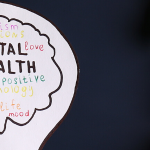All Clear Foundation Names Mike Taigman Chairman of the Board
This appointment demonstrates its commitment to serving those in emergency services with the wellness resources they need, when they need them, free of charge
Denver, Colorado, USA – All Clear Foundation (ACF), a national 501c3 nonprofit dedicated to improving the wellbeing and longevity of Emergency Responders, including Healthcare Workers, and their families, has appointed Mike Taigman Chairman of the Board.
“My life’s purpose–for my entire life–has been to recognize suffering in all its forms and do something about it. All Clear Foundation’s mission is in complete alignment with that passion,” says Taigman. “I am humbled and excited by this opportunity.”
A Proven Track Record
Taigman brings a wealth of experience to this role. He spent decades on the streets of Denver as a paramedic, honing his “people first” approach. The author of more than 600 articles in professional journals, Taigman is a recognized expert in the areas of quality improvement, data science, leadership, and EMS. He serves as adjunct faculty at University of Maryland, Baltimore County and UCSF, and he is the Improvement Guide at FirstWatch, a data analytics firm dedicated to quality improvement in public safety.
“We are thrilled to have Mike on board,” says Rhonda Kelly, the foundation’s Executive Director. “His passion for improving quality of life among Emergency Responders is sincere and his track record is unparalleled. We appreciate his focus on the full spectrum of wellness supports from proactive education to crisis intervention. And we are very excited about his commitment to utilizing evidence-based practices to drive improvement.”
ACF relies upon the power of strategic partnerships to affect change and appreciates Taigman’s extensive experience building and growing partnerships in the Responder wellness world. In addition to facilitating development of EMS Agenda 2050, a vision EMS 20 years into the future, he is the author of Super-Charge Your Stress Management in the Age of COVID and is regular faculty at the Institute for Healthcare Improvement.
A Vision Forward
Among his top priorities, Taigman looks forward to ensuring the sustainability of All Clear’s mission. “My hope is to support the ongoing mission and build sustainable support and funding for the foundation so we can continue this important work,” says Taigman. “There’s so much evidence that being involved in emergency services and healthcare takes a toll on the folks doing the job.”
“All Clear Foundation has pulled together an ecosystem of resources that is unmatched and provides them free of charge to Emergency Responders, their agencies, and their families. Securing reliable support for these efforts is essential and ongoing.”
A Clear Need
The need is there. One study found Emergency Responders suffer from depression and PTSD at five times the rate of the general population. Among the many challenges inherent in the work are frequent trauma exposure, rotating shift schedules, limited agency support, amplified stress on the family and other relationships, and physical injury.
“Too many Emergency Responders have paid for their service with their lives, either in quality or longevity,” says Director Kelly. “The barriers of shame, stigma, lack of local resources, and lack of finances have kept many from accessing the supports they deserve and need. This is where All Clear Foundation steps in. Built by Responders, for Responders, we are here to help across the domains of wellness: mental, emotional, physical, social, and spiritual.”
Supporting First Responders
All Clear Foundation provides an array of easily accessible and navigable wellness solutions at no cost to agencies or participants. ResponderStrong, its mental health initiative, has had a significant impact nationally and continues to grow with hybrid-format educational content and digital tools. Partners organizations include Global Medical Response, FirstNet-Built with AT&T, Abbott Nutrition, The Center for Relationship Education, IndyCar, IPSDI, Sigma Tactical Wellness, and NERPSC.
“The work All Clear and its partner organizations provide is saving lives,” says Taigman. “But, beyond that, it’s making Emergency Responders happier, healthier, and more resilient. This is good news for all of us.”
###
ABOUT FIRSTWATCH
Since 1998, FirstWatch has been helping EMS agencies monitor real-time situational awareness, operational performance, clinical quality and performance improvement measures, as well as health surveillance, bioterrorism or other potentially concerning incidents. FirstWatch is designed to aggregate data from your agency’s CAD, ePCR, ProQA, RMS, Hospital ED, Billing and Phone system into a single, automated real-time view. For more information, visit www.firstwatch.net.
ABOUT ALL CLEAR FOUNDATION
Through assessing community wellness needs, priorities, and barriers, All Clear Foundation, a 501c3 public charity, leverages the power of strategic partnerships to create easily accessible and navigable systems of wellness solutions, improving the wellbeing and longevity of those who serve our communities. In 2019, ACF was founded by Global Medical Response as an autonomous public charity designed to serve and benefit the national Emergency Responder community. As one of the largest employers of Public Safety personnel in the U.S., GMR believes it has a duty to support the overall wellness of all Responders nationally. All Clear Foundation’s mission is to improve the overall wellbeing and longevity of those who serve our communities in times of need. We believe that healthy emergency responders contribute to healthier communities. For more information, visit www.allclearfoundation.org.
For more information, please contact Crawford Coates at ccoates@firstwatch.net.









